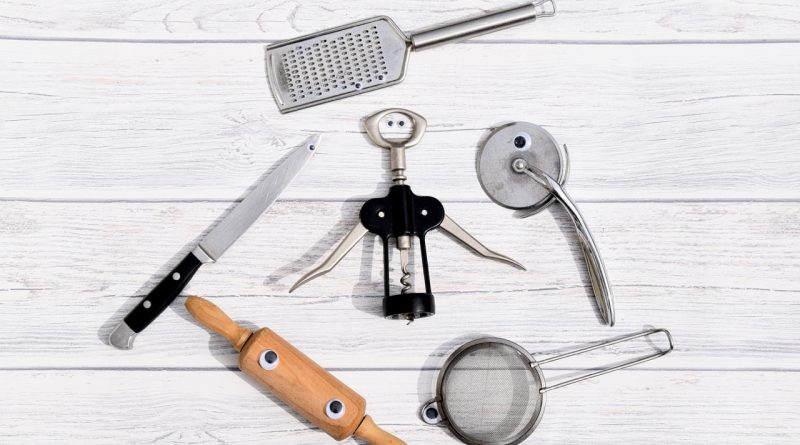Zwilling’s Contribution To Modern Culinary Innovation
Zwilling, a name synonymous with quality in the culinary world, has been at the forefront of kitchen innovation for over 280 years. Established in 1731 in Solingen, Germany, the brand has evolved from producing traditional cutlery to becoming a leader in modern culinary tools and cookware. This article explores Zwilling’s contributions to culinary innovation across various dimensions, including craftsmanship, materials, engineering, and sustainability. Understanding these facets illuminates how Zwilling has shaped the modern kitchen and continues to influence culinary practices worldwide.
The Legacy of Zwilling: Craftsmanship Meets Innovation
Zwilling’s legacy is deeply rooted in its commitment to craftsmanship. The brand began as a cutlery manufacturer, and its products were marked by an unwavering focus on quality. Each knife and tool is produced with meticulous attention to detail, reflecting centuries of expertise. This dedication to craftsmanship ensures that Zwilling products not only meet but exceed the expectations of both amateur cooks and professional chefs alike.
As the culinary landscape has evolved, so too has Zwilling’s approach to innovation. While maintaining traditional techniques, the company has integrated modern technologies to enhance the performance of its products. For example, Zwilling has adopted advanced heat treatment processes that improve the durability and sharpness of their knives, allowing for precision cutting that caters to contemporary cooking styles. This fusion of old and new allows Zwilling to remain relevant in a fast-paced industry while staying true to its roots.
Furthermore, Zwilling has expanded its product range to include cookware, kitchen gadgets, and even high-quality cutlery sets that cater to a diverse audience. This diversification showcases Zwilling’s ability to adapt to changing consumer needs, incorporating innovative designs and functionalities that enhance the cooking experience. From ergonomic handles to aesthetically pleasing finishes, each product is designed with both form and function in mind.
Revolutionary Materials: Zwilling’s Impact on Cookware
In the realm of cookware, Zwilling has made significant strides by utilizing revolutionary materials that enhance cooking performance. One of the most notable advancements is the use of stainless steel in their pots and pans. Unlike other materials, stainless steel is resistant to rust and corrosion, ensuring longevity and durability. Additionally, it provides an even heat distribution, which is essential for achieving consistent cooking results across various dishes.
Zwilling has also embraced non-stick technologies that are both safe and effective. Their ceramic non-stick coatings are free from harmful chemicals, making them a healthier choice for cooking. These innovative coatings not only reduce the need for excessive oils but also facilitate easy food release and cleanup, making them a practical option for busy home cooks. The incorporation of such materials reflects Zwilling’s commitment to marrying technology with culinary excellence.
Moreover, Zwilling’s use of advanced materials extends to its knife manufacturing. The brand employs high-carbon stainless steel, which is known for its superior sharpness and edge retention. This material allows for the production of blades that not only slice through ingredients effortlessly but also withstand the wear and tear of daily use. By prioritizing high-quality materials, Zwilling ensures that its products remain a staple in kitchens around the world, combining practicality with innovation.
Precision Engineering: Enhancing Culinary Performance
Precision engineering is another hallmark of Zwilling’s contribution to modern culinary tools. The brand employs cutting-edge technology to create products that enhance cooking performance dramatically. For instance, Zwilling knives are often designed with precision-honed blades that feature a perfect balance, allowing for effortless cutting and slicing. This attention to detail results in tools that empower cooks to achieve professional-level results in their kitchens.
Additionally, Zwilling’s innovative designs often include features that cater to specific culinary techniques. For example, their cutting boards are crafted from high-quality materials that reduce knife dulling, while their cookware is designed with optimized shapes to enhance heat retention and distribution. Such advancements allow chefs and home cooks alike to explore a wider range of cooking methods, from sautéing to simmering, without compromising on quality.
The integration of technology into product design is evident in Zwilling’s kitchen gadgets as well. Items like peelers, graters, and spatulas are engineered to provide maximum efficiency and ease of use. This focus on precision engineering not only enhances the cooking experience but also encourages creativity in the kitchen, making it easier for cooks of all skill levels to experiment with new recipes and techniques.
Sustainable Practices: Zwilling’s Commitment to the Future
As culinary innovation continues to evolve, Zwilling is equally committed to sustainability and environmental responsibility. The brand recognizes the impact that manufacturing can have on the planet and has taken significant steps to minimize its carbon footprint. For instance, Zwilling has implemented energy-efficient practices in its production facilities, ensuring that resources are used wisely and waste is reduced.
Furthermore, Zwilling is dedicated to sourcing materials responsibly. The brand prioritizes sustainable sourcing for its wood products and uses recyclable packaging to reduce waste. By choosing eco-friendly materials, Zwilling not only contributes to environmental conservation but also appeals to a growing number of consumers who prioritize sustainability in their purchasing decisions.
In addition, Zwilling’s commitment to longevity in its products reflects a sustainable approach to culinary tools. By creating durable, high-quality items that stand the test of time, the brand encourages consumers to invest in fewer products that offer lasting value. This philosophy aligns with a broader movement toward mindful consumption, promoting a kitchen culture that values quality over quantity.
In summary, Zwilling’s contributions to modern culinary innovation are multifaceted and impactful. From its rich legacy of craftsmanship to the integration of revolutionary materials and precision engineering, the brand has consistently pushed the boundaries of what is possible in the kitchen. Moreover, its commitment to sustainable practices reflects a forward-thinking approach that resonates with today’s environmentally conscious consumers. As Zwilling continues to innovate, it remains a vital player in shaping the future of culinary arts, ensuring that both professional chefs and home cooks have access to the tools they need to succeed.
